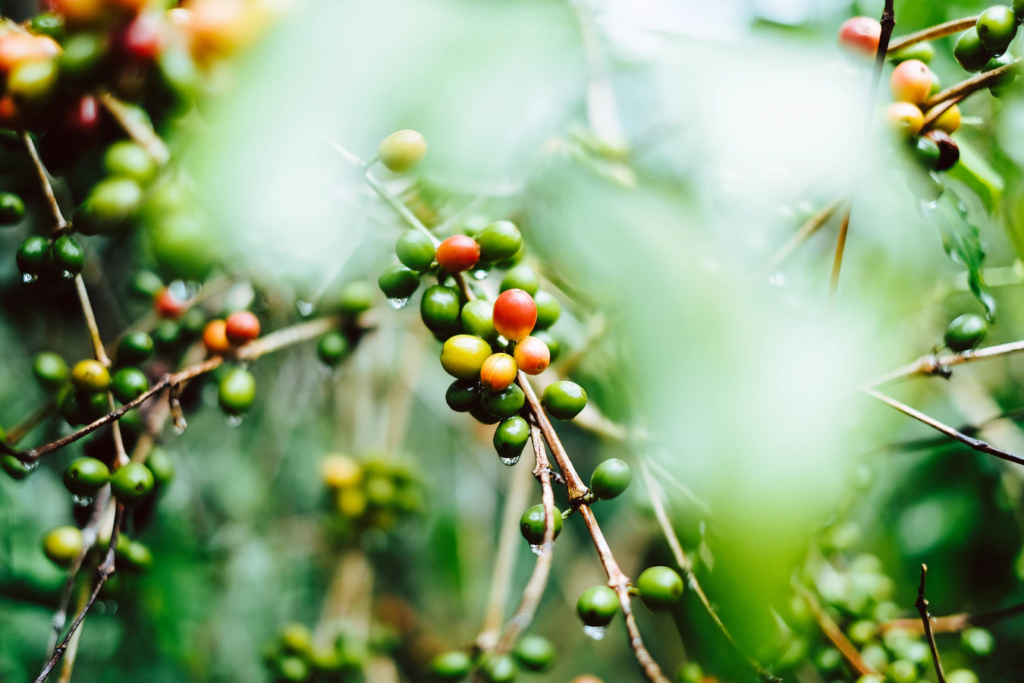In the dynamic ethanol landscape, two terms have been gaining more and more popularity: organic and GMO-free. Both signify ethanol produced with specific standards that appeal to conscientious consumers and industries. However, understanding their differences and the appropriate application per economic region is crucial for making informed product choices. This blog dives into the nuances between organic ethanol and GMO-free ethanol, guiding you through their unique characteristics and suitability for various uses.
Back to the basics: What is organic ethanol?
Organic ethanol, or organic alcohol, is produced from organic feedstock—typically crops like corn, sugarcane, or wheat—that are grown without synthetic pesticides, fertilisers, or genetically modified organisms (GMOs). Certified organic ethanol must adhere to rigorous standards set by organisations such as the USDA in the United States or the EU's organic certification body. This ensures that every step, from the cultivation of the feedstock to the production process, aligns with organic farming principles.
What is GMO-free ethanol?
GMO-free ethanol, or GMO-free alcohol, is derived from feedstock that has not been genetically modified. Unlike organic ethanol, GMO-free ethanol does not necessarily follow organic farming practices; the primary concern is the genetic makeup of the crops used. The feedstock must be non-GMO, meaning the crops have not been altered through genetic engineering. GMO-free certification is provided by various independent organisations, ensuring that the product meets the GMO-free criteria.
Organic vs GMO-free alcohol
.webp)
Farming practices
While organic ethanol must adhere to strict organic farming methods, avoiding synthetic chemicals and GMOs, and maintaining soil health and ecological balance, GMO-free is solely focused on the absence of genetically modified organisms. Farming practices may still involve synthetic chemicals and conventional methods.

Certification and standards
Organic alcohol requires certification from recognised bodies like USDA Organic, ensuring comprehensive compliance with organic standards. Meanwhile, certifications of GMO-free alcohol focus solely on the genetic integrity of the feedstock, with organisations like the Non-GMO Project providing verification. This means that, if a GMO-free product has the USDA Organic certification, it is both GMO-free and organic.

Environmental impact
Sustainable farming practices, reduced chemical use, and enhanced biodiversity of organic ethanol tend to have a lower environmental impact compared to non-organic products. GMO-free ethanol's environmental impact varies depending on farming practices; a GMO-free status doesn't necessarily equate to sustainable agriculture.
Regional popularity and relevance
The supply and demand of GMO-free or organic ethanol are highly dependent on the economic region where it is sold and distributed. In North America, GMO-free ethanol is gaining more and more popularity due to the continent's wide production of GMO raw materials that are under heavy scrutiny by environmental enthusiasts. Furthermore, the market is driven by growing consumer demand for transparency and natural ingredients.
The European market is mostly GMO-free due to more than 25 European countries prohibiting or restricting the use and sale of GMO-free products. Therefore, organic alcohol is the more popular option in Europe.
In Asia, interest in organic products is growing, particularly in regions like Japan and South Korea, where there is a strong emphasis on health and wellness. GMO-free products are only interesting for markets that allow the use of GMOs; however, many Asian countries have genetically modified organisms banned or restricted.
South America, especially Brazil and Argentina, is seeing increasing demand for both organic and GMO-free ethanol, driven by both domestic and international markets.
Commonalities between organic and GMO-free ethanol
Despite their differences, organic and GMO-free ethanol share some common ground:

Consumer perception
Both are favoured by consumers seeking natural and ethically produced products. They appeal to health-conscious and environmentally aware individuals.

Labelling and transparency
Both types of ethanol emphasise transparency and traceability, ensuring consumers and industries know the origins and production methods.

Market demand
There is a growing demand for both organic and GMO-free products, driven by trends towards sustainability and clean labels.
GMO-free vs organic: An important distinction
Understanding the differences between organic and GMO-free ethanol is essential for making informed choices in your regional market. While organic ethanol is characterised by its stringent farming and production standards, GMO-free ethanol focuses on the genetic integrity of the feedstock. Both have their benefits and applications, catering to the rising demand for natural and ethically produced products.
Whether you prioritise comprehensive organic standards or the assurance of GMO-free ingredients, both types of ethanol play a crucial role in a more sustainable and transparent market. Ethanol suppliers such as Nedstar can help you make the right choices for your product needs and market.










Leave a comment